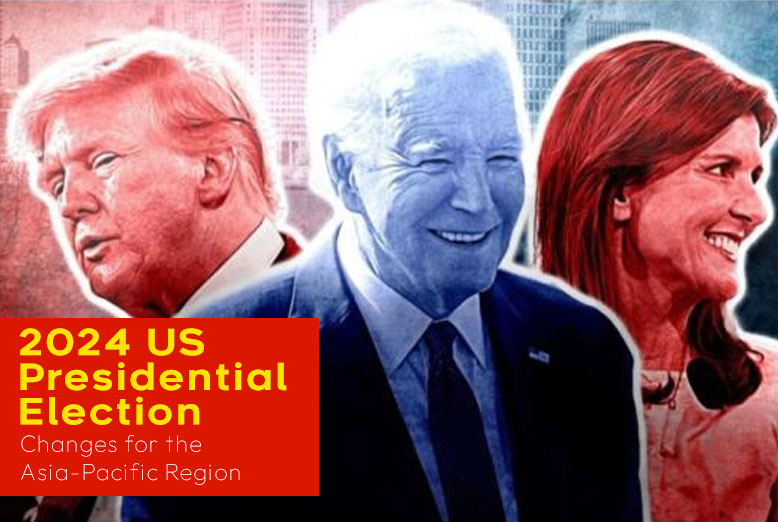The 2024 US presidential election is poised to significantly impact global dynamics, particularly in the Asia-Pacific region. As the world’s largest economy, the US plays a crucial role in shaping international business landscapes. Understanding the potential policies of each candidate can provide valuable insights into the future of business development in this vital region.
Economic Policies and Trade Relations
The economic policies of the presidential candidates are a key area of interest for the Asia-Pacific region. If the incumbent administration remains in power, we can expect a continuation of current trade policies, which emphasize a cautious yet strategic approach to China. This might mean sustained tariffs on certain Chinese goods and an encouragement of domestic manufacturing to reduce reliance on imports.
For businesses in the Asia-Pacific, particularly those in export-heavy economies like Japan and South Korea, this could lead to continued uncertainty and necessitate strategies to mitigate potential disruptions in trade.
On the other hand, a change in administration might bring about a shift towards more open trade policies. A candidate favoring globalization could reduce tariffs and foster a more cooperative relationship with China. This could rejuvenate supply chains and bolster business confidence across the region. Countries like Vietnam and Malaysia, which have been pivotal in the global supply chain, might find new opportunities to expand their exports to the US under such a scenario.
Technological Innovation and Cybersecurity
Technological innovation and cybersecurity are increasingly pivotal in US-Asia-Pacific relations. The current administration has taken a firm stance on protecting intellectual property and enhancing cybersecurity measures, particularly against perceived threats from China. This has led to increased scrutiny on Chinese tech companies and a push for stronger alliances with technology hubs in Taiwan, South Korea, and Japan.
Should a new administration take a different stance, there could be a relaxation of these measures, fostering more collaboration in technology and innovation. This might include joint ventures in emerging technologies such as AI, 5G, and quantum computing. For businesses in the Asia-Pacific, especially tech startups, this could mean greater access to American markets and investments. However, it also implies a need to navigate the complex landscape of US regulations and standards.
Environmental Policies and Green Technology
Environmental policies are another critical factor. The incumbent administration’s focus on energy independence and reduced regulatory oversight has significant implications for the Asia-Pacific’s energy markets. For instance, countries like Australia, with its vast natural gas exports, might continue to benefit from sustained US demand for fossil fuels. However, this could also mean less emphasis on green technology and renewable energy cooperation.
In contrast, a candidate with a strong environmental agenda might push for robust international agreements on climate change, encouraging investment in renewable energy sources. This could lead to increased collaboration in green technologies, benefiting countries like China and India, which are major players in solar and wind energy production. Businesses involved in the green tech sector could see heightened demand for their innovations, aligning with global efforts to combat climate change.
Geopolitical Stability and Defense
Geopolitical stability is a perennial concern in the Asia-Pacific region, and the US’s role as a stabilizing force cannot be understated. The current administration’s stance on military presence and defense agreements has reinforced commitments to allies like Japan, South Korea, and the Philippines. This has contributed to a stable environment conducive to business operations.
However, the presidential betting odds suggest a potential shift in administration, which could lead to different defense strategies. A candidate advocating for reduced military expenditure might scale back US presence in the region, prompting Asia-Pacific nations to bolster their own defense capabilities. This could lead to increased defense spending within the region and the development of local defense industries. For businesses, this presents both opportunities and challenges, depending on their involvement in the defense sector.
Impact on Multilateral Organizations and Agreements
The US’s approach to multilateral organizations and agreements is crucial for the Asia-Pacific. The current administration has taken a somewhat unilateral approach, withdrawing from or renegotiating several international agreements. This has created a vacuum that other regional powers, particularly China, have been eager to fill. Countries in the Asia-Pacific have had to adapt to this shifting landscape, often seeking new alliances and trade partnerships.
A new administration might bring a return to multilateralism, re-engaging with international organizations like the World Trade Organization (WTO) and rejoining agreements like the Trans-Pacific Partnership (TPP). This could enhance stability and predictability in trade relations, benefiting businesses by providing a clearer regulatory framework and reducing the risk of sudden policy changes. For the Asia-Pacific region, this might mean stronger economic ties with the US and greater integration into the global economy.
Conclusion
The 2024 US presidential election will undoubtedly have far-reaching implications for the Asia-Pacific region. From economic policies and technological innovation to environmental strategies and geopolitical stability, each candidate’s approach will shape the future of business development in this critical part of the world. For businesses operating in the Asia-Pacific, staying informed and adaptable to these potential changes is essential for navigating the complexities of the global market. As the election approaches, keeping an eye on the evolving policies and their likely impact on international relations will be crucial for strategic planning and sustained growth.
Also Read; Why Asia Pacific is becoming the best place for business students




















